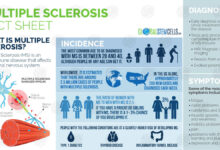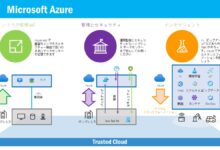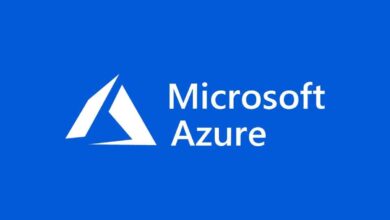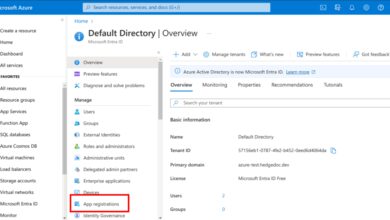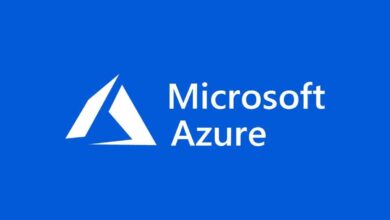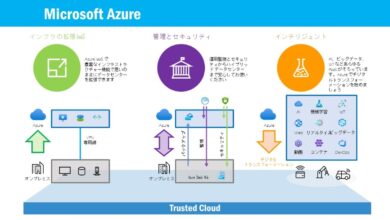Azure Certifications: 7 Ultimate Power-Packed Paths to Dominate the Cloud
Kickstarting your journey with Azure certifications can skyrocket your cloud career—discover the ultimate paths, benefits, and strategies to master Microsoft’s ecosystem.
Azure Certifications: Your Gateway to Cloud Mastery

Microsoft Azure has firmly established itself as one of the leading cloud platforms globally, second only to AWS in market share. As businesses continue migrating their infrastructure to the cloud, the demand for skilled professionals who can design, implement, and manage Azure environments is skyrocketing. This is where Azure certifications come into play—offering a structured, industry-recognized path to validate your expertise and boost your credibility in the IT world.
Whether you’re an aspiring cloud administrator, a developer diving into cloud-native applications, or an architect designing scalable solutions, Azure certifications provide a clear roadmap. Microsoft has meticulously designed its certification paths to align with real-world job roles, ensuring that each credential reflects practical skills and knowledge. From foundational knowledge to expert-level mastery, these certifications are tiered to help professionals grow step by step.
What makes Azure certifications especially powerful is their alignment with Microsoft’s enterprise ecosystem. Companies using Microsoft 365, Dynamics 365, or hybrid environments often rely on Azure for integration, security, and scalability. Holding an Azure certification not only proves technical proficiency but also signals to employers that you understand how cloud solutions integrate with broader business systems.
Why Azure Certifications Matter in 2024
In today’s competitive tech job market, having hands-on experience isn’t always enough. Employers need a way to verify skills quickly and reliably—and certifications serve as that trusted benchmark. According to LinkedIn’s 2023 Workplace Learning Report, cloud computing remains one of the most in-demand skill sets, with Azure skills ranking among the top five.
Azure certifications are developed in collaboration with industry experts and are regularly updated to reflect the latest technologies, such as AI integration, serverless computing, and hybrid cloud models. This ensures that certified professionals are not just learning outdated concepts but are instead equipped with cutting-edge knowledge.
Moreover, Microsoft’s certification program is role-based, meaning each certification targets a specific job function—like Administrator, Developer, or Architect. This role-centric approach makes it easier for professionals to choose the right path and for hiring managers to identify qualified candidates. For example, someone with an Azure Administrator Associate certification has proven they can manage cloud resources, implement security, and monitor performance—skills directly applicable to day-to-day operations.
The Evolution of Azure Certifications
Microsoft has come a long way from its early days of technology certifications. In the past, certifications were often product-focused and siloed. However, with the rise of cloud computing, Microsoft overhauled its certification strategy in 2019 to adopt a role-based model. This shift was a game-changer, making Azure certifications more relevant, practical, and aligned with modern IT roles.
Before this transformation, certifications like MCSA (Microsoft Certified Solutions Associate) were popular but didn’t always reflect real-world job responsibilities. The new Azure certification paths are designed around actual workflows—planning, deploying, managing, and securing cloud environments. This evolution has made the certifications more respected by employers and more valuable to professionals.
For instance, the introduction of certifications like Azure Solutions Architect Expert ensures that architects aren’t just tested on theory but on their ability to make strategic decisions about scalability, cost, and security. This real-world focus is what sets Azure certifications apart from generic IT credentials.
“Certifications are no longer just about passing exams—they’re about proving you can do the job.” — Microsoft Learning Team
Understanding the Azure Certification Path Hierarchy
One of the most powerful aspects of Azure certifications is their structured hierarchy. Microsoft has organized its certifications into four main levels: Fundamental, Associate, Expert, and Specialty. This tiered system allows professionals to progress logically from beginner to advanced levels, ensuring a solid foundation before moving on to complex topics.
Each level serves a distinct purpose. The Fundamental tier is perfect for those new to cloud computing or IT in general. It provides a broad overview without requiring deep technical knowledge. The Associate level is where most professionals aim, as it validates job-ready skills for specific roles. The Expert level is reserved for seasoned professionals who can design and lead complex cloud initiatives. Finally, the Specialty certifications focus on niche areas like security, AI, or data engineering, allowing experts to deepen their knowledge in high-demand domains.
This clear progression not only helps individuals plan their learning journey but also gives employers confidence in the depth of knowledge a candidate possesses. For example, someone with an Expert-level certification has likely spent years gaining experience and passing rigorous exams, making them a valuable asset to any organization.
Fundamental Level: The Starting Point
The Azure Fundamental certifications are designed for beginners, career changers, or non-technical professionals who want to understand cloud concepts. The most popular certification at this level is the Microsoft Certified: Azure Fundamentals (AZ-900). This exam covers core cloud concepts, Azure services, security, privacy, compliance, and pricing models.
What makes AZ-900 so accessible is that it doesn’t require prior hands-on experience with Azure. It’s ideal for sales professionals, project managers, or IT support staff who need a foundational understanding of cloud technology. Passing this exam demonstrates that you grasp the basics of how cloud computing works and how Azure fits into the broader IT landscape.
Many professionals use AZ-900 as a stepping stone. It builds confidence and provides the vocabulary needed to engage in technical discussions. Some even take it before diving into more advanced certifications to ensure they have a solid conceptual base. Microsoft also offers free learning paths on Microsoft Learn, making it easier than ever to prepare without spending a dime.
azure certifications – Azure certifications menjadi aspek penting yang dibahas di sini.
Associate and Expert Levels: Building Real-World Skills
Once you’ve mastered the fundamentals, the next step is the Associate level. These certifications are where the real technical depth begins. They are role-specific and require hands-on experience with Azure services. Popular Associate certifications include:
- Azure Administrator Associate (AZ-104): For professionals who manage cloud resources, configure virtual networks, and implement security.
- Azure Developer Associate (AZ-204): For developers building cloud applications using Azure services like Functions, App Services, and Storage.
- Azure Security Engineer Associate (AZ-500): For specialists focused on securing cloud environments, managing identity, and protecting data.
- Azure Data Scientist Associate (DP-100): For data professionals designing and implementing machine learning solutions.
To earn an Associate certification, candidates typically need 6–12 months of hands-on experience with Azure. The exams are performance-based, meaning you’ll be asked to complete tasks in a live environment or simulated lab, not just answer multiple-choice questions. This ensures that certified individuals can actually perform the job.
The Expert level is the pinnacle of Azure certifications. It’s designed for professionals with several years of experience who can lead cloud projects and make high-level architectural decisions. The two main Expert certifications are:
- Azure Solutions Architect Expert: Requires passing both AZ-104 and AZ-305. Architects must demonstrate the ability to design scalable, secure, and cost-effective solutions.
- Azure DevOps Engineer Expert: Requires passing AZ-400. This certification validates skills in CI/CD, infrastructure as code, and automated testing.
Earning an Expert certification is no small feat. It requires deep technical knowledge, problem-solving skills, and the ability to think strategically about cloud infrastructure. Many professionals spend months preparing, using a mix of official training, hands-on labs, and practice exams.
Top 7 Azure Certifications You Should Consider in 2024
With so many Azure certifications available, it can be overwhelming to decide which one to pursue. To help you navigate, here are the seven most valuable and in-demand Azure certifications in 2024—each offering unique career advantages and aligned with high-growth job roles.
1. Microsoft Certified: Azure Fundamentals (AZ-900)
This is the gateway certification for anyone entering the Azure ecosystem. AZ-900 is perfect for non-technical professionals, students, or those transitioning from on-premises IT to cloud roles. It covers essential topics like:
- Cloud concepts (IaaS, PaaS, SaaS)
- Core Azure services (Compute, Networking, Storage)
- Security, privacy, and compliance
- Pricing, support, and lifecycle management
While it doesn’t qualify you for technical roles, AZ-900 is often a prerequisite for more advanced certifications and is highly valued by employers as proof of foundational knowledge. Many companies even sponsor this exam for new hires to ensure everyone speaks the same cloud language.
2. Azure Administrator Associate (AZ-104)
If you’re aiming for a hands-on technical role, AZ-104 is one of the most sought-after Azure certifications. It’s designed for IT professionals who manage Azure environments daily. Key skills validated include:
- Managing Azure identities and governance (Azure AD, RBAC)
- Implementing and managing storage (Blob, Disk, File)
- Deploying and managing virtual machines and containers
- Configuring and managing virtual networks
- Monitoring and backing up Azure resources
According to Indeed, Azure Administrators earn an average of $85,000–$110,000 per year in the U.S., with higher salaries in tech hubs. This certification is also a required step toward earning the Azure Solutions Architect Expert credential, making it a smart long-term investment.
3. Azure Developer Associate (AZ-204)
For software developers looking to build cloud-native applications, AZ-204 is the go-to certification. It validates your ability to develop, deploy, and troubleshoot applications using Azure services. Key areas include:
- Developing Azure compute solutions (App Services, Functions, Kubernetes)
- Implementing Azure storage (Tables, Cosmos DB, Blob)
- Securing applications with authentication and authorization
- Implementing APIs and event-based architectures
- Monitoring and optimizing application performance
This certification is ideal for full-stack developers, backend engineers, or DevOps professionals who want to specialize in cloud development. With the rise of microservices and serverless computing, AZ-204 holders are in high demand across industries.
4. Azure Security Engineer Associate (AZ-500)
As cyber threats grow more sophisticated, cloud security has become a top priority for organizations. The AZ-500 certification is designed for security professionals responsible for protecting Azure environments. It covers:
- Managing identity and access (Azure AD, Conditional Access)
- Implementing platform protection (Firewalls, DDoS protection)
- Securing data and applications (Encryption, Key Vault)
- Monitoring security with Microsoft Defender for Cloud
- Responding to security incidents and threats
Holding AZ-500 demonstrates that you can design and implement robust security controls in Azure. It’s a critical credential for roles like Cloud Security Analyst, Security Operations Engineer, or Compliance Officer. Many organizations now require this certification for cloud security positions.
5. Azure Solutions Architect Expert
This is one of the most prestigious Azure certifications. To earn it, you must pass two exams: AZ-104 (Administrator) and AZ-305 (Architect Technologies). This certification is for professionals who design end-to-end cloud solutions, balancing technical requirements with business goals.
Key skills include:
- Designing for identity, governance, and compliance
- Designing data storage solutions (SQL, NoSQL, Data Lake)
- Designing business continuity (backup, disaster recovery)
- Optimizing cost and performance
- Designing for security and scalability
Azure Solutions Architects are often senior-level professionals who work closely with stakeholders to align technology with business strategy. According to Payscale, certified Azure Architects earn an average of $130,000–$160,000 annually, making this one of the highest-paying IT certifications.
azure certifications – Azure certifications menjadi aspek penting yang dibahas di sini.
6. Azure DevOps Engineer Expert (AZ-400)
In today’s fast-paced development environments, DevOps practices are essential for delivering software quickly and reliably. The AZ-400 certification validates expertise in continuous integration, continuous delivery (CI/CD), infrastructure as code, and automated testing.
Key topics include:
- Designing and implementing DevOps practices
- Managing source control with Azure Repos
- Configuring build and release pipelines
- Implementing compliance and security in DevOps
- Monitoring and optimizing application performance
This certification is ideal for DevOps engineers, release managers, or developers who want to bridge the gap between development and operations. With companies adopting Agile and DevOps at scale, AZ-400 holders are highly sought after.
7. Specialty Certifications: Deep Dive into Niche Areas
Microsoft also offers Specialty certifications for professionals who want to focus on specific domains. These are advanced credentials that require existing expertise and are perfect for standing out in competitive fields. Notable ones include:
- Azure AI Engineer Associate (AI-102): For professionals building AI solutions with Azure Cognitive Services and Machine Learning.
- Azure Data Engineer Associate (DP-203): For experts who design and implement data platforms using Azure Synapse, Data Factory, and Databricks.
- Azure for SAP Workloads Specialty (AZ-120): For consultants and architects deploying SAP systems on Azure.
These certifications are not for beginners—they require deep technical knowledge and often years of experience. However, they open doors to high-paying consulting roles, specialized projects, and leadership positions in data, AI, and enterprise applications.
How to Prepare for Azure Certifications: A Step-by-Step Guide
Earning an Azure certification isn’t just about memorizing facts—it’s about mastering practical skills. Here’s a proven step-by-step guide to help you prepare effectively and pass your exam on the first try.
Step 1: Choose the Right Certification
Start by aligning your certification choice with your career goals. Ask yourself:
- What job role do I want?
- What skills are in demand in my industry?
- Do I have the required experience?
If you’re unsure, begin with AZ-900 to build confidence. Then, based on your interests—administration, development, security, or architecture—choose the next certification. Microsoft’s certification paths page provides clear guidance on prerequisites and recommended learning paths.
Step 2: Leverage Free Learning Resources
Microsoft offers a wealth of free resources through Microsoft Learn. Each certification has a dedicated learning path with modules, hands-on labs, and knowledge checks. These are developed by Microsoft experts and are 100% aligned with exam objectives.
Additionally, platforms like YouTube, GitHub, and community forums (e.g., Microsoft Tech Community) offer free tutorials, sample code, and troubleshooting tips. Many professionals also use free Azure credits (available through the Azure Free Account) to practice in a real environment.
Step 3: Gain Hands-On Experience
No amount of theory can replace real-world practice. Set up a lab environment using the Azure Free Tier (which includes 12 months of free services and $200 credit for new users). Try deploying virtual machines, configuring networks, setting up storage, and automating tasks with PowerShell or CLI.
If you don’t have access to a work environment, consider personal projects—like building a web app with Azure App Services or creating a CI/CD pipeline with Azure DevOps. Hands-on experience not only prepares you for the exam but also makes you more confident in job interviews.
Step 4: Use Practice Exams and Study Groups
Practice exams from providers like MeasureUp, Whizlabs, or Transcender simulate the real test environment and help identify knowledge gaps. They’re especially useful for understanding question formats and time management.
Joining study groups or online communities (like Reddit’s r/Azure or LinkedIn groups) can also boost your preparation. Discussing concepts with peers, sharing tips, and solving problems together enhances understanding and keeps you motivated.
Step 5: Schedule and Take the Exam
Once you feel confident, schedule your exam through Pearson VUE or Certiport. Most Azure exams cost between $99 and $165. You can take them online with remote proctoring or at a physical test center.
On exam day, stay calm, read questions carefully, and manage your time. Remember, many questions are scenario-based, so think like a real Azure professional making decisions in a business context.
azure certifications – Azure certifications menjadi aspek penting yang dibahas di sini.
“The best way to predict the future is to create it.” — Abraham Lincoln (and every successful Azure cert holder)
Benefits of Earning Azure Certifications
Investing time and effort into Azure certifications pays off in multiple ways—both professionally and personally. Here are the key benefits you can expect:
Career Advancement and Higher Salaries
Certified professionals often see faster career progression. Many companies use certifications as a criteria for promotions or hiring. According to a Microsoft-commissioned study, 82% of hiring managers consider certifications important when evaluating candidates.
Salary data consistently shows that certified Azure professionals earn more. For example:
- Azure Administrator: +20% salary increase on average
- Azure Architect: Often commands six-figure salaries
- Security and DevOps specialists: Among the highest-paid IT roles
Additionally, certifications can open doors to consulting, freelancing, or speaking opportunities at tech events.
Enhanced Technical and Problem-Solving Skills
Preparing for Azure certifications forces you to dive deep into topics you might otherwise overlook. You’ll learn best practices for security, cost optimization, high availability, and disaster recovery—skills that are invaluable in real-world scenarios.
Moreover, the process sharpens your problem-solving abilities. You’ll encounter complex scenarios that require critical thinking, helping you become a more effective and confident IT professional.
Global Recognition and Credibility
Microsoft is a globally trusted brand. An Azure certification is recognized worldwide, making it easier to work with international teams or pursue opportunities abroad. Whether you’re in New York, London, or Singapore, your certification holds the same weight.
It also builds credibility with clients and stakeholders. When you present a solution, your certification signals that you’re not just guessing—you’re following proven, industry-standard practices.
Common Challenges and How to Overcome Them
While Azure certifications offer immense value, the journey isn’t always easy. Many candidates face common challenges that can derail their progress. Here’s how to overcome them:
Lack of Hands-On Experience
One of the biggest hurdles is not having access to Azure environments. If your job doesn’t involve Azure, it’s hard to gain practical experience. The solution? Use the Azure Free Account. It gives you $200 in credit and access to most services for 12 months. Build projects, break things, and learn by doing.
You can also contribute to open-source projects on GitHub or volunteer to help small businesses set up cloud infrastructure.
Exam Anxiety and Failure
It’s normal to feel nervous before an exam. Some candidates even fail on their first attempt. Don’t let this discourage you. Microsoft allows retakes (with a waiting period and additional fee). Use the experience to identify weak areas and improve.
Practice under timed conditions, simulate the exam environment, and focus on understanding concepts—not just memorizing answers.
Keeping Up with Rapid Changes
Azure evolves quickly, with new services and features released regularly. This means exam content can change, and certifications may retire. Stay updated by following the Azure Updates blog and Microsoft Learn announcements.
Microsoft typically provides a six-month grace period when retiring exams, so plan accordingly. Also, consider recertification—it keeps your skills current and shows commitment to lifelong learning.
Future Trends in Azure Certifications and Cloud Careers
The cloud landscape is evolving at lightning speed, and Azure certifications are adapting to stay relevant. Here are key trends shaping the future:
azure certifications – Azure certifications menjadi aspek penting yang dibahas di sini.
Increased Focus on AI and Machine Learning
With Microsoft integrating AI into nearly every Azure service—from Copilot in Azure DevOps to AI-powered security in Defender—certifications are beginning to reflect this shift. Expect more AI-related content in exams and new credentials focused on responsible AI, MLOps, and cognitive services.
Professionals who combine cloud expertise with AI skills will be in extremely high demand.
Growth of Hybrid and Multi-Cloud Skills
While public cloud adoption is growing, many enterprises still rely on on-premises systems. Azure Stack, Arc, and hybrid identity solutions are becoming critical. Future certifications may place greater emphasis on managing hybrid environments and integrating Azure with other platforms like AWS or Google Cloud.
Understanding multi-cloud strategies will be a valuable differentiator.
Emphasis on Sustainability and Cost Optimization
As organizations focus on environmental impact, Microsoft is promoting sustainable cloud practices. Future Azure certifications may include topics on energy-efficient architectures, carbon footprint tracking, and cost-effective resource management.
Learning how to design green, cost-optimized solutions will not only help the planet but also make you more valuable to cost-conscious businesses.
Are Azure certifications worth it in 2024?
Absolutely. With cloud adoption accelerating and Azure’s market share growing, these certifications remain one of the best investments for IT professionals. They validate real skills, boost earning potential, and open doors to exciting career opportunities.
How long does it take to get an Azure certification?
It depends on your background. Beginners might spend 4–8 weeks preparing for AZ-900, while Associate-level exams often require 3–6 months of study and hands-on practice. Expert certifications may take 6–12 months, especially if you’re gaining experience along the way.
Do Azure certifications expire?
Yes. Most Azure certifications are valid for one year. To maintain your credential, you must complete free online renewal assessments on Microsoft Learn every year. This ensures your knowledge stays current with the latest Azure updates.
Can I get Azure certified for free?
You can access free learning materials through Microsoft Learn, and new users get $200 in Azure credits for 30 days. Microsoft occasionally offers free exam vouchers through events like Ignite or training campaigns. Some employers also sponsor certifications for their employees.
Which Azure certification is best for beginners?
The Microsoft Certified: Azure Fundamentals (AZ-900) is the best starting point. It requires no prior experience and provides a solid foundation for more advanced certifications.
azure certifications – Azure certifications menjadi aspek penting yang dibahas di sini.
Choosing the right Azure certification path can transform your career. From foundational knowledge to expert-level mastery, these credentials offer a proven route to success in the cloud era. Whether you’re just starting out or looking to level up, investing in Azure certifications is a powerful move that delivers real-world results. Start today, stay consistent, and watch your career soar.
Further Reading:


